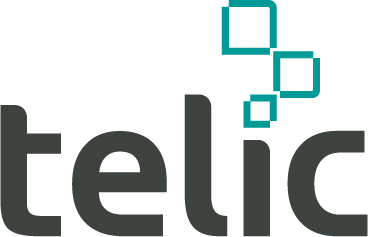

Telic Advisory Limited

London Borough of Harrow, United Kingdom
August 2022
Accounting & auditing
Service with Minor Environmental Footprint
United Kingdom
Telic means to ‘act with purpose’ in Greek. We offer accounting & tax services to family owned-businesses, purpose-driven entrepreneurs and personal clients. We are a family business based in NW London with over 130 years of combined tax and accounting expertise. We have a team of 8 accountants of which 5 are Chartered Tax Advisers. Yogesh Patel set up Telic with the belief that having purpose and driving a culture where everyone enjoys what they do, will deliver supreme client service as a consequence. He is also the Accountant-in-Residence at the London School of Economics social entrepreneurship programme. In our quest to make a difference more broadly, we have put in place our strategy of a “A million little things”, which is our way of championing good and ethical business. A million sounds like a big number but it’s our stretch target which aims to push us in everything we do. We don’t claim to be changing the world every day, but we believe that if we can work on the principle of small gains every day our lives, our communities’ lives, and our planet will look better than it does today. Start Small, Think Big!
Overall B Impact Score
Governance 15.0
Governance evaluates a company's overall mission, engagement around its social/environmental impact, ethics, and transparency. This section also evaluates the ability of a company to protect their mission and formally consider stakeholders in decision making through their corporate structure (e.g. benefit corporation) or corporate governing documents.
What is this? A company with an Impact Business Model is intentionally designed to create a specific positive outcome for one of its stakeholders - such as workers, community, environment, or customers.
Workers 25.7
Workers evaluates a company’s contributions to its employees’ financial security, health & safety, wellness, career development, and engagement & satisfaction. In addition, this section recognizes business models designed to benefit workers, such as companies that are at least 40% owned by non-executive employees and those that have workforce development programs to support individuals with barriers to employment.
Community 25.9
Community evaluates a company’s engagement with and impact on the communities in which it operates, hires from, and sources from. Topics include diversity, equity & inclusion, economic impact, civic engagement, charitable giving, and supply chain management. In addition, this section recognizes business models that are designed to address specific community-oriented problems, such as poverty alleviation through fair trade sourcing or distribution via microenterprises, producer cooperative models, locally focused economic development, and formal charitable giving commitments.
Environment 10.7
Environment evaluates a company’s overall environmental management practices as well as its impact on the air, climate, water, land, and biodiversity. This includes the direct impact of a company’s operations and, when applicable its supply chain and distribution channels. This section also recognizes companies with environmentally innovative production processes and those that sell products or services that have a positive environmental impact. Some examples might include products and services that create renewable energy, reduce consumption or waste, conserve land or wildlife, provide less toxic alternatives to the market, or educate people about environmental problems.
Customers 2.7
Customers evaluates a company’s stewardship of its customers through the quality of its products and services, ethical marketing, data privacy and security, and feedback channels. In addition, this section recognizes products or services that are designed to address a particular social problem for or through its customers, such as health or educational products, arts & media products, serving underserved customers/clients, and services that improve the social impact of other businesses or organizations.